Cancer Nature (CN) is a peer-reviewed open access scientific journal published by SciTeMed Publishing Group.
Cancer Nature provides an integrated view of modern oncology across all disciplines.The journal covers all aspects of cancer research, including the pathophysiology, prevention, diagnosis and treatment of cancers. Cancer Nature welcomes submissions concerning molecular and cellular biology, genetics, epidemiology, and clinical trials.
Cancer Nature provides readers with critically peer-reviewed, carefully selected and up-to-date publications. All the manuscripts submitted to CN will be subjected to peer-review by the Editors of the respective specialty section. The review process will be conducted by the handling editor alone or by collaborating with the outside experts. The decision will be finalized by the editor considering and analyzing the minimum of two independent reviewer’s comment. Authors may submit manuscripts and track the current status of their manuscript through the submission tracking system. Reviewers can download manuscripts and submit their comment to the editor through the same system, and editors can manage or monitor the whole submission/review/revise/publish process.
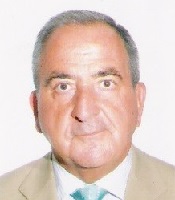
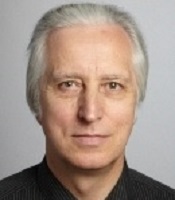
Dr. Planoutis is Assistant Professor of Icahn School of Medicine at Mount Sinai in New York, USA. He is also holding position at American Association for Cancer Research. His research interests include Wnt signaling in cancer, colorectal cancer stem cells, cancer therapy resistance, and tumor microenvironment. Dr. Planoutis serves as article reviewer in highly ranked medical journals. He has an extensive list of recent publications, including book chapters, reviews, SCI original papers, and presentations in international medical congresses.
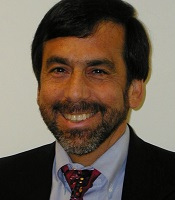
Professor Michael N. Liebman received his PhD in Theoretical Chemistry and Protein Crystallography at the University of Wisconsin, Madison, WI. He currently serves as the Managing Director of IPQ Analytics and Strategic Medicine. Professor Liebman has vast experience of teaching and research. He is an Adjunct Professor of Pharmacology and Physiology at Drexel College of Medicine and Adjunct Professor of Drug Discovery, First Hospital of Wenzhou Medical University and also Fudan University. He was an Associate Professor of Pharmacology and of Physiology/Biophysics at Icahn School of Medicine at Mount Sinai, in New York City. Professor Liebman serves on 14 scientific advisory boards and the Board of Directors of the Nathaniel Adamczyk Foundation in Pediatric ARDS and Innovene Pharmaceuticals.Professor Liebman is Chair of the Informatics Program and also Chair of Translational Medicine and Therapeutics for the PhRMA Foundation and a member of their Scientific Advisory Board. He is on the Advisory Board of the International Society for Translational Medicine and on the Editorial Board for the Journal of Translational Medicine, for Clinical and Translational Medicine and for Molecular Medicine and Therapeutics, for Clinico-Economics and Outcomes Research and Biomedicine Hub, and the International Park for Translational Biomedicine. Professor Liebman is a member of the IUPAC Division on Human Health’s Medicinal Chemistry subcommittee. He has served on the External Advisory Board for the INBRE (NIH) program for the state of Delaware since 2000. He is an Invited Professor at the Shanghai Center for Bioinformatics Technology and of the Chinese Academy of Sciences. Professor Liebman’s research focuses on computational models of disease progression that stress risk detection, disease processes and clinical pathway modeling, and disease stratification from the clinical perspective. He utilizes systems-based approaches and design thinking to represent and analyze risk/benefit analysis in pharmaceutical development and healthcare.
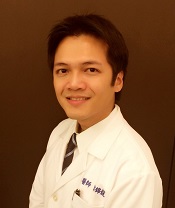
Dr. Chin-Lung Kuo earned his PhD from the Institute of Brain Science, National Yang-Ming University in Taiwan. He completed his otolaryngology residency, chief residency, and fellowship training at the Department of Otolaryngology-Head and Neck Surgery, Taipei Veterans General Hospital, Taiwan. He has focused his research on auditory neuroplasticity as one of his principal areas of study. He has been the first author or corresponding author of more than 70 publications, including two book chapters, original papers, and reviews. His research paper was selected as the cover story of the journal "Audiology and Neurotology" in 2012. Moreover, Dr. Kuo was awarded the Outstanding Paper Award in 2013 by the Laser Medicine Education and Research Foundation as well as the 2015 Hayashi SPIO (Society for Promotion of International Otorhinolaryngology) Scholarship in Japan. Stanford University has recently published an update on the top 2% of most widely cited scientists across different disciplines, the World's Top 2% Scientists for 2021. This ranking, considered the most prestigious worldwide, is based on the bibliometric information contained in the Scopus database and includes more than 190,063 researchers from the more than 8 million scientists considered to be active worldwide, with 22 scientific fields and 176 subfields taken into account. The list recognized Dr. Kuo as one of the top 2% scientists that has brought great pride to Dr. Kuo and his research team. Dr. Kuo believes that a greater accessibility to research data can benefit both medical research and science education. He is pleased to take on the role of deputy editor for Archives of Otorhinolaryngology-Head and Neck Surgery, a journal that strives to provide a new venue for researchers to publish their research and advance the field of otorhinolaryngology.
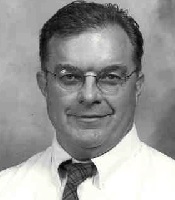
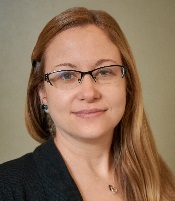
Dr. Riddle is a Staff Pathologist at Tampa General Hospital for Ruffolo, Hooper, and Associates as well as Assistant Professor for the University of South Florida College of Medicine in the Department of Pathology and Laboratory Medicine where she serves as Residency Research Liaison and Site Director. Organized medicine is something she enjoys and is very active holding positions with the American Medical Association, the College of American Pathologists, the Digital Pathology Association, and the United States and Canadian Academy of Pathology. Her research Interests include the pathology of bone and soft tissue, neuro, and GI tract. Dr. Riddle is an active researcher with extensive publications, she has authored more than 30 published articles including SCI original papers, review articles, as well as book chapters. She is in the editorial board of international peer-reviewed journals. Dr. Riddle has participated with numerous presentations in international medical congresses and served as grant and article reviewers in highly ranked medical journals.
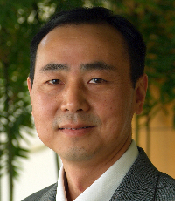
Jason Cheng, MD, PhD, serves as an assistant professor and an attending physician in the Section of Hematopathology, University of Chicago. Dr. Cheng obtained his medical degrees Peking (Beijing) Medical University and Kunming Medical University in China. He received his PhD under the guidance of Dr. Rudy L. Juliano, in the Department of Pharmacology at the University of North Carolina-Chapel Hill (UNC-CH). He pursued his post-doctoral training in yeast genetics and gene regulation in the laboratory of Dr. Mark Ptashne, at Memorial Sloan Kettering Cancer Center in New York. Dr. Cheng completed his residency in anatomic and clinical Pathology at University of Chicago and his fellowship training in Hematopathology under the guidance of Dr. James W. Vardiman at the University of Chicago. During his PhD. at UNC-CH, he made an invention of a novel technology (US patent no 5,869,250, 1999) for identity sequence-specific DNA-binding peptides for constructing artificial transcription factors and gene regulation. During his residency and clinical fellow training, he first identified the loss of protein expression of INI1/hSNF5/BAF47/SMARCB1 as a hallmark for diagnosis of renal medullary carcinoma (Modern Pathology, 2008). He also won the 2008 Pathologist-in-Training Award from the Society for Hematopathology and the 2008 Paul E. Strandjord Young Investigator Award from the Academy of Clinical Physicians and Scientists for conducting the first genome-wide epigenetic profiling of DNA and H3K27 trimethylation in clinical MDS specimens. He received the Cancer Research Foundation Young Investigator Award in 2014. He published multiple papers in peer-reviewed, high-impact factor journals including Leukemia, PNAS, Immunity and Molecular Cell.
An important aspect of the analysis of the proliferation of cell populations as composed of a set of intercommunicating logistic domains is the nature of the barriers between adjacent domains and the regulation of cellular migration between them. The nature of these inter-domain boundaries is discussed in relation to the central role of L-type calcium channels in the control of cell motility and it is proposed that domain boundaries are determined by proteoglycans which act as calcium chelators and hence regulate the local extracellular Ca++ concentration. The selective migratory advantage gained by overexpression of calcium channels is briefly alluded to.